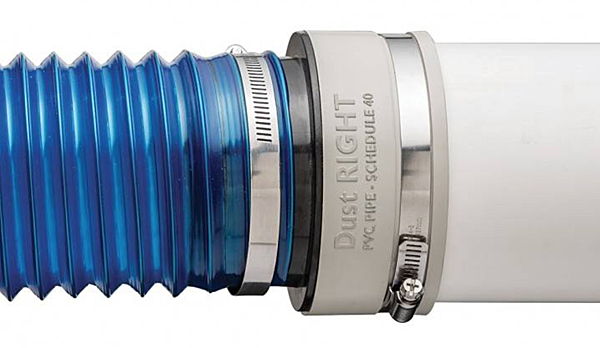
I received a woodworkers catalog in the mail recently and noticed an ad for dust collection systems. A boxed article at the bottom of one page talked about the dangers of using PVC pipes for ducts: “Warning: You risk fire and explosion if all duct work is not properly grounded.” The ad went on to explain how to string copper wire down the middle of each pipe and to install rivets every foot and how to connect all this together and to ground it. Then there was a complete kit available for purchase; installation instructions to be included. I thought all this blarney had been put to rest.

Back in 2001, Dr. Rod Cole, a Ph.D. and mathematician at the Lincoln Labs at MIT, along with a friend, also a professor at MIT and an expert in the physics of lightning, conducted studies which concluded:
1. In lab-sized experiments, no one has ever been able to get electrostatic ignition of any dust – even those more highly combustible than wood dust. These two Ph.D. scientists also tried and could not get an explosion.
2. There has never been a documented case of an explosion with PVC in a home shop or a case of an explosion in a filter bag.
3. It is impossible to ground an insulator. Plastic PVC pipe is an insulator and cannot be grounded. How do you ground something that does not conduct electricity?
Dr. Cole, who is a woodworker himself, points out that there are dust-related hazards in the shop.
1. The dust pile — A saw blade or a sander can hit a piece of metal and a spark can land in a dust pile. This might smolder for hours before a fire erupts. There are reports of fires that started in a floor-sander bag and in a dust pile under a table saw.
2. Filter bags — A spark can be sucked up and land in a dust collection bag. Most impeller blades are now made of plastic and will not cause a spark. A pinched saw blade can cause hot embers.
These are real problems — an explosion caused by static electricity in a plastic pipe is not.






